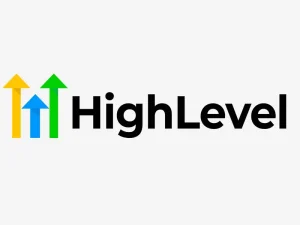Do you need help to drive traffic to your website? Are you looking for effective strategies to boost your online presence and increase your website’s visibility? Look no further! This blog post will explore the link-building world and seven powerful methods to skyrocket your website’s traffic. Link building is a crucial aspect of SEO (Search Engine Optimization) that involves acquiring quality backlinks from other websites. Not only does it improve your search engine rankings, but it also drives targeted traffic to your site. So, whether you’re a small business owner or a seasoned digital marketer, these link-building strategies will surely take your website’s traffic to new heights! Let’s get started!
Understanding the importance of link-building
Link building is the backbone of any successful SEO strategy. It involves acquiring backlinks from other websites to improve your website’s authority and visibility in search engine results. But why is link-building so important? Well, search engines like Google consider backlinks as votes of confidence for your website. The more quality backlinks you have, the higher your website will rank.
When a reputable website links to yours, it signals to search engines that your content is valuable and trustworthy. This increases organic traffic as search engines prioritize websites with strong backlink profiles.
Additionally, link building helps you tap into new audiences and expand your reach online. When you secure links on relevant websites within your industry or niche, you expose yourself to potential customers who may not have discovered you otherwise.
However, focusing on quality rather than quantity regarding link building is essential. Acquiring spammy or low-quality links can do more harm than good and even result in penalties from search engines.
To fully understand the importance of link building, remember that it’s about increasing traffic and establishing credibility and authority within your industry. By consistently implementing effective link-building strategies, you’ll be well on your way to achieving long-term success for your website!
Identifying your target audience and relevant websites for link-building
Identifying your target audience and relevant websites for link-building is crucial in any successful link-building strategy. Before you start reaching out to other websites, you must clearly understand your target audience and what kind of websites they visit.
Start by defining your target audience demographics, such as age, gender, location, interests, and online behavior. This will help you narrow down the types of websites that are most likely to attract your desired audience.
Next, conduct thorough research to find websites that align with your niche or industry. Look for authoritative sites that have high domain authority and traffic volume. These websites can provide valuable backlinks and drive targeted traffic to your location.
In addition to finding relevant websites within your niche, consider exploring partnerships with complementary businesses or organizations. For example, collaborating with a health food blog or an eco-friendly lifestyle website could benefit both parties if you sell organic skincare products.
Remember that quality trumps quantity when it comes to link building. Fewer backlinks from highly relevant and reputable sources are better than numerous links from unrelated or low-quality sites.
Remember local directories and listings if you have a brick-and-mortar business. Getting listed on platforms like Google My Business or Yelp can improve your visibility in local search results while providing valuable backlinks.
By identifying your target audience and finding relevant websites for link-building purposes, you can maximize the effectiveness of this strategy in driving traffic to your website while improving its overall SEO performance.
Guest blogging as a powerful link-building strategy
Guest blogging is an incredibly powerful strategy when it comes to link building. By contributing valuable content to other websites within your niche, you establish yourself as an authority and gain valuable backlinks.
When selecting websites for guest blogging opportunities, it’s important to identify those with a strong following relevant to your target audience. This ensures that your efforts will more likely drive traffic to your website.
Before pitching a guest blog post idea, take the time to research and understand the website’s audience. Tailor your content specifically for them, addressing their pain points and providing solutions or insights that they will find valuable.
When writing your guest blog post, ensure it is high quality and provides unique information or perspectives. This will increase the chances of other websites linking back to it organically.
Once your guest blog post is published, promote it proactively through social media platforms such as Twitter, Facebook, and LinkedIn. Engage with readers who comment on or share your post, further expanding its reach.
Remember that consistency is key when utilizing guest blogging as a link-building strategy. Regularly contribute valuable content to different websites within your niche to continuously build relationships and get more links to your site.
Guest blogging is a powerful way to build links while also establishing credibility within your industry. By putting in the effort and delivering high-quality content consistently, you can skyrocket traffic to your website over time.
Utilizing social media platforms for link-building
Utilizing social media platforms for link building can be a game-changer in increasing your website’s traffic. With billions of active users on various social media channels, the potential for reaching a wider audience and generating backlinks is immense.
One effective strategy is to actively engage with your target audience by sharing valuable content related to your niche. By consistently providing informative and engaging posts, you can attract more followers who will likely share your content and provide backlinks.
Participating in relevant industry groups and communities on platforms like Facebook, LinkedIn, or Reddit can help you connect with like-minded individuals and potential link-building opportunities. Sharing useful insights or answering questions can position you as an authority figure within your niche while attracting attention and possible backlinks.
Another powerful tool for link-building through social media is influencer outreach. Collaborating with influencers who have established credibility in your industry can expose your brand to their followers and earn valuable backlinks from their websites or blogs.
It’s important to remember that simply posting links without context may come across as spammy. Instead, focus on creating meaningful conversations around topics related to your website’s content. This approach will encourage genuine engagement from users, who may be more inclined to share or link to your site.
Remember the importance of visual content on social media platforms. Eye-catching images or videos that add value will improve engagement rates, increasing shares and potential backlink opportunities.
Leveraging social media platforms for link-building should be essential to any comprehensive SEO strategy. By actively engaging with your target audience, collaborating with influencers, sharing quality content, and utilizing visual elements effectively – you’ll be well on your way toward skyrocketing traffic to your website!
Creating high-quality content that naturally attracts links
Creating high-quality content is essential for attracting natural links to your website. When your content is valuable, informative, and engaging, other websites naturally want to link to it. But how can you ensure that your content stands out from the crowd?
Focus on providing unique and original information that cannot be easily found elsewhere. Conduct thorough research and offer fresh insights or perspectives on a topic. This will make readers more likely to share and link to your content.
Additionally, pay attention to the format of your content. Use eye-catching visuals such as images or infographics to enhance the readability and appeal of your articles. Incorporate videos or interactive elements whenever possible – this makes your content more engaging and increases the chances of others linking back to it.
Furthermore, remember that well-written and error-free content is crucial for building trust with readers and search engines alike. Proofread thoroughly before publishing any piece of writing.
Remember to optimize your content for SEO purposes. Research keywords related to your topic and incorporate them strategically into headings, subheadings, meta descriptions, and throughout the body of the text.
Following these tips when creating high-quality content for link-building purposes will quickly increase the likelihood of attracting natural links from authoritative websites!
Leveraging broken link building to gain backlinks
Leveraging broken link-building can be a highly effective strategy for gaining valuable backlinks to your website. It involves finding broken links on other websites relevant to your niche and contacting site owners or web admins to suggest replacing them with links to your content.
One way to find broken links is using tools like Check My Links or Broken Link Checker. These tools scan web pages and identify any broken links they come across. Once you have identified a relevant webpage with broken links, you can inform the site owner or web admin about the issue.
When reaching out, it’s important to approach them politely and professionally. Explain that you noticed some broken links on their website and offer suggestions for replacement, including providing the URL of your content as an alternative.
By leveraging broken link building, you are helping website owners fix issues on their sites and creating an opportunity for yourself by gaining high-quality backlinks. This strategy requires persistence and patience but can significantly boost your website’s traffic.
Measuring the success of your link-building efforts
Measuring the success of your link-building efforts is crucial to understanding the impact it’s having on your website’s traffic. You can determine which strategies are working and which ones need improvement with proper measurement.
One way to measure the success of your link-building campaigns is through monitoring referral traffic. By analyzing where your website visitors are coming from, you can identify which links drive the most traffic. This information will help you prioritize your efforts and focus on building more links from those high-performing sources.
Another important metric to consider is domain authority. The higher the domain authority of a linking site, the more valuable that link becomes for improving search engine rankings. Tools like Moz’s Domain Authority can provide insights into how authoritative a website is, allowing you to gauge the quality of backlinks you’re acquiring.
In addition, tracking keyword rankings can indicate whether your link-building efforts positively impact organic search visibility. If certain keywords rank higher after implementing a specific strategy, it’s a good sign that your approach is effective.
Remember engagement metrics such as bounce rate and time spent on the page. These metrics can reveal whether visitors from linked sources find value in your content or quickly leave without any interaction.
By consistently monitoring these metrics and making adjustments based on performance data, you can optimize your link-building strategies for maximum results.
Common mistakes to avoid in link-building
While link building can be a highly effective strategy for driving traffic to your website, it’s important to approach it cautiously and avoid common pitfalls. Here are some key mistakes you should steer clear of:
1. Buying links: It may be tempting to take shortcuts by purchasing links, but search engines like Google have become adept at detecting paid links and penalizing websites that engage in this practice. Instead, focus on acquiring organic and natural backlinks.
2. Spamming forums and comment sections: Posting irrelevant comments or promotional content to obtain backlinks is not only spammy but also ineffective. Engage genuinely in conversations and provide value before including any links.
3. Ignoring relevance: Linking from irrelevant websites to your industry or target audience will only do a little good for your website’s traffic or SEO rankings. Ensure the websites you’re targeting for link building align well with your niche.
4. Neglecting quality over quantity: While it’s true that having more backlinks can boost your website’s visibility, it’s equally crucial to prioritize quality over quantity. Aim for authoritative websites with high domain authority scores when seeking linking opportunities.
5. Over-optimized anchor text: Using overly optimized anchor text (the clickable part of a hyperlink) can raise red flags with search engines if done excessively or unnaturally. Keep anchor text diverse and relevant to maintain a natural-looking link profile.
6. Failing to diversify linking sources: Relying too heavily on one type of link source, such as guest blogging alone, leaves you vulnerable if that source becomes less effective or loses its impact altogether due to changes in algorithms or trends.
7. Unresponsive outreach practices: When contacting other website owners for potential collaborations or guest posting opportunities, follow up promptly and professionally when they show interest in working together.
By avoiding these common mistakes and implementing the strategies discussed in this article, you can effectively leverage link building to drive traffic to your website and improve your search engine rankings. Remember to continuously monitor and adjust your approach based on data and results to maximize the effectiveness of your efforts.






